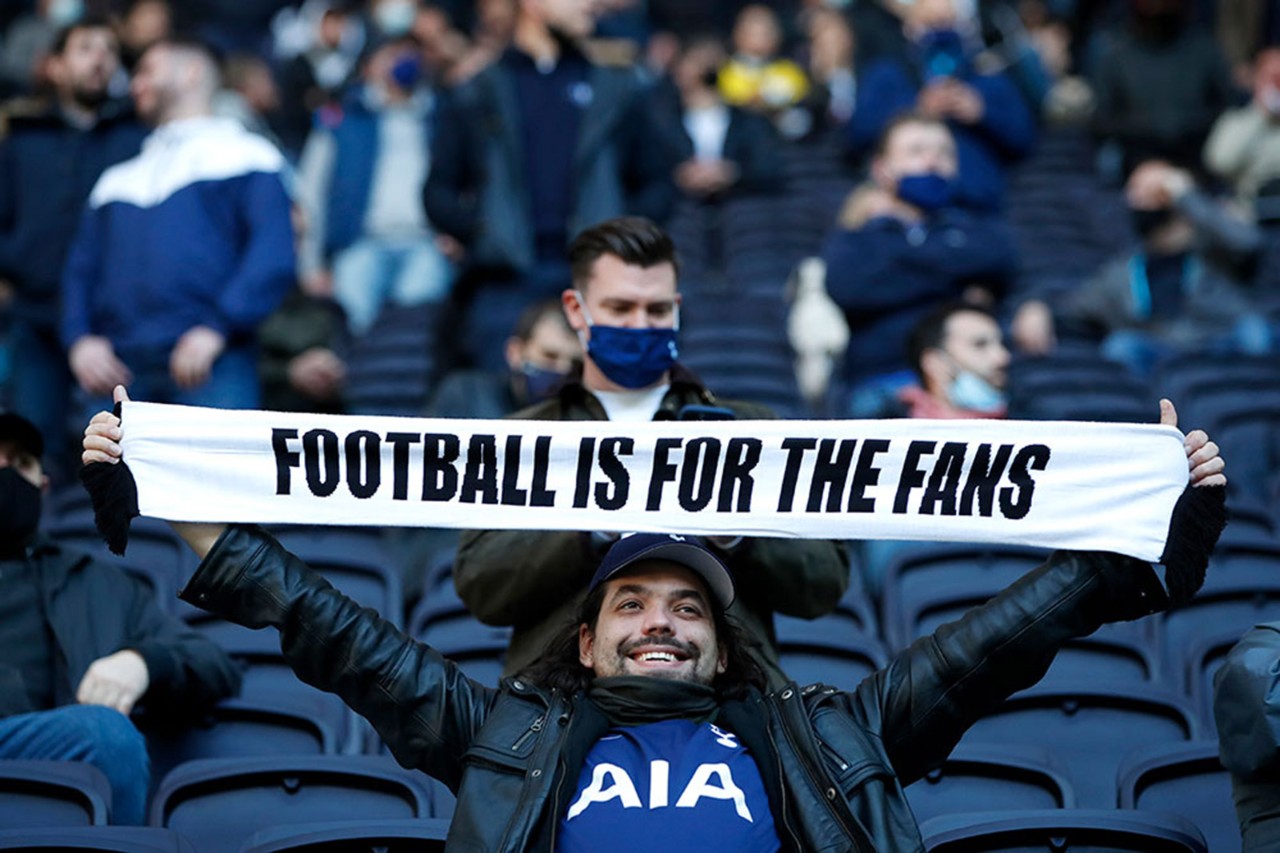
It is difficult to comprehend how such a seismic proposal for football, the controversial European Super League (ESL), was handled so badly. Within 48 hours of its launch announcement, the project had completely unravelled, leaving a ‘dirty dozen’ club owners reeling from the strength of feeling against the ‘breakaway’ league.
However, the business case for the ESL – including a guaranteed US$264m a year participation fee and no relegation for the 12 founding clubs – presents a compelling financial argument. That fee would provide financial security in uncertain times. ESL clubs have collectively suffered a coronavirus-induced revenue shortfall of over €800m (US$978m).
A ‘welcome bonus’ of up to €300m (US$365m) for each club from JP Morgan was also on offer. The bank had committed a €3.2bn (US$3.9bn) loan to help finance the breakaway competition and was set to charge an interest rate of 2%–3%.
Financial sustainability
An ESL terms sheet reads: ‘The Super League will be structured, operated and governed so the clubs can be financially sustainable over the long term, helping to ensure that clubs can not only deliver the best product on the pitch, but also deliver off the pitch and in the best interests of their full range of external stakeholders.’
Despite the wealth already on offer at the top of the football pyramid, the 12 founder clubs have combined gross debts of £5.6bn (US$7.9bn), according to Uefa’s definition of debt and each club’s most recent published accounts: £3.5bn (US$4.9bn) of financial debt and £2.1bn (US$3bn) in outstanding sums that the 12 clubs owe on player transfers. If other debts are added in – such as amounts owed to staff, tax authorities, suppliers and other creditors – then the total indebtedness figure rises to £7.4bn (US$10.4bn), as shown in the box below.
Nearly all the financial debt is owed to banks – just £200m (US$290m) is owed to club owners, although that figure doesn’t include the £1.4bn (US$2bn) put into Chelsea by owner Roman Abramovich via a holding company, which keeps the club relatively debt-free.
Tottenham is the most heavily in debt. The club owes more than £1bn (US$1.4bn) – mainly as a result of the construction of a new stadium.
While elite club debts have grown, so has the disparity between the English Premier League clubs and those across other major European leagues. Uefa assessed the 2017/18 financial reports of all 712 clubs in the top divisions of Uefa’s 54 European member countries and found the Premier League has cemented its financial dominance over all other leagues.
2019/20 total debt of the ESL clubs
- Tottenham £1,177m (US$1,633m)
- Barcelona £1,030m (US$1,455m)
- Atletico Madrid £804m (US$1,136m)
- Manchester United £771m (US$1,089m)
- Inter Milan £757m (US$1,069m)
- Juventus £752m (US$1,062m)
- Real Madrid £651m (US£920m)
- Arsenal £405m (US$572m)
- Liverpool £386m (US$545m)
- AC Milan £247m (US$349m)
- Chelsea £224m (US$316m)
- Manchester City £202m (US$285m)
Total £7,405m
Source: @SwissRamble
‘Everyone says this is about the money, but frankly I don’t get it’
Analysts put the combined revenues of the 20 Premier League clubs at €5.4bn (US$6.6bn) – some €2.2bn (US$2.7bn) more than Bundesliga clubs in Germany, whose members made €3.2bn (US$3.9bn). La Liga clubs in Spain generated €3.1bn (US$3.8bn), Italian Serie A clubs earned €2.3bn (US$2.8bn), and France’s Ligue 1 earned €1.7bn (US$2.1bn).
It is easy to understand why the top European clubs wish to bridge that gap, while the leading Premier League clubs don’t want to be overtaken. The 12 founder clubs believed the ESL would generate more than €4bn (US$4.8bn) a season – twice as much as the Champions League.
Bigger pots of gold
The ESL revenue would have been shared between a smaller pool of clubs – 20 (consisting of up to 15 founding clubs, with the rest invited on the basis of sporting or historical merit) rather than the 32 that compete in the current Champions League format, the tournament the ESL was intended to replace.
Each founding club was projected to earn over €500m (US$608m) a year from the competition. By comparison, German club Bayern Munich banked €130m (US$158m) for winning the 2020 Champions League.
The financial model was constructed so that the 15 founding clubs would share 32.5% of commercial revenues, with a further 32.5% shared between all 20 teams in the competition.
Once the annual tournament was completed, another 20% of revenues would have been distributed on the basis of performance, with the remaining 15% shared out depending on each club’s broadcast audience.
ESL clubs were also given the right to broadcast four matches a season on their own digital platforms – something they are not currently permitted to do. It is estimated that Liverpool, for example, could earn £500m (US$707m) a year by using pay per view on its own media channel.
Doesn’t add up
However, Dan Jones, head of the Deloitte’s Sports Business Group, believes the ESL proposal didn’t stack up. He told Sky News: ‘Everyone says this is about the money, but frankly I don’t get it. People said it must be about Asia or America, but it is a midweek European league.
‘The games would presumably be played on midweek evenings, going out in Asia in the early hours of the morning and the US in early afternoon. I don’t understand the economics behind it.’
Nonetheless, don’t be surprised if the ESL – or a similar concept – appears on the landscape again sooner rather than later.
Further information
Read AB analysis Leaders: Beware the own goal and A game of two halves


